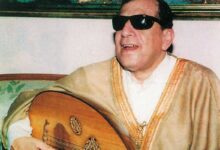
وقد ذكر الإمام الطبري في كتابه تفسير القرآن اختلاف أهل التفسير في تفسير قوله تعالى في سورة الإسراء (ولا تنهك ما ليس لك به علم). وقال بعضهم: معناه: ولا تقل ما ليس لك به علم. .
وذكر من قال ذلك :
وحدثني علي بن داود، قال: حدثني أبو صالح، قال ٤٢٣١٢٣٣: حدثني معاوية، عن علي، عن ابن عباس قوله (ولا تنهك ما ليس لك به علم). )) يقول: لا تقل .
حدثنا بشر، قال: حدثنا يزيد، قال: حدثنا سعيد، عن قتادة (ولا تنهض ما ليس لك به علم إن السمع والبصر والفؤاد كل كان مسؤلا). ) ولا تقل: رأيت ولم ترى، وسمعت ولم تسمع، فسيسألك الله تبارك وتعالى عن ذلك كله. .
حدثنا محمد بن عبد الأعلى، قال: حدثنا محمد بن ثور، عن معمر، عن قتادة (ولا تنهى عما ليس لك به علم) قال: لا تقل: أنا رأيت ولم أرى، وسمعت ولم أسمع، وعرفت ولم أعرف. .
وروي عن محمد بن ربيعة، عن إسماعيل الأزرق، عن أبي عمر البزار، عن ابن الحنفية قال: شهادة الزور. .
وقال آخرون: بل معناه: لا ترموا الحجارة .
وذكر من قال ذلك :
حدثني محمد بن سعد، قال: شجعني أبي، قال: شجعني عمي، قال: ثبطني أبي، عن أبيه، عن ابن عباس، قوله (ولا قف عما ليس لك به علم) قال: لا ترم أحدا بما ليس لك به علم. .
وحدثني محمد بن عمرو، قال: حدثنا أبو عاصم، قال: حدثنا عيسى؛ أخبرني الحارث، قال: حدثنا الحسن، قال: حدثنا ورقاء جميعا، عن ابن أبي نجيح، عن مجاهد (ولا تقوموا) ولا تقوموا. لا رمي. .
حدثنا القاسم، قال: حدثنا الحسين، قال: حدثنا حجاج، عن ابن جريج، عن مجاهد مثله. .
وهذان التفسيران متقاربان في المعنى، لأن القول بما لا يعلمه المتكلم يتضمن شهادة الزور، ورمي الناس بالباطل، وادعاء السمع ما لم يسمع، والرؤية ما لم يره. أصل القفو هو: اللقمة والذبول، ومنه قول النبي صلى الله عليه وسلم: «نحن ابناء[al-NadrbinKinanahdonotqaffoonourmother’ssidenorareweestrangedfromourfather”SomeoftheBasransusedtoreciteaverseaboutthat :
And like dolls, they smell the nakedness, they are still shy, and they do not show rhyme
By rhyming, it means: throwing. He claims that the meaning of his saying (Do not stop) is: Do not follow what you do not know, and it does not concern you. Some people of Arabic, from the people of Kufa, claimed that its origin was qiyafa, which is following the trace, and since it was as they mentioned, the recitation must be (and do not stop) with the addition of the qaf and the sukoon of the fa, such as: and do not say. He said: And the Arabs say: I stopped at his track, I stopped at his track, so sometimes you precede the waw before the fa and sometimes delay it after it, as it was said: the bottom of a camel: when he rides it, he falls and mounts; And I seek to hear from the Arabs :
If I had shot you from close range, I would have disobeyed you from the supplication of the wolf
It means: an obstacle, and there are many analogues of this in Arab speech .
The most correct opinion on this matter is the statement of the one who said: The meaning of that is: Do not say to people about them that which you have no knowledge of, lest you accuse them of falsehood and bear witness against them without the truth, for that is deception. .
Rather, we said that the most correct statement about it, because that is the predominant use of the Arabs’ rhyme in it .
As for his saying (Indeed, the hearing, the sight, and the heart are all responsible for him), then… [ ص: 449 ] يعني: أن الله يسأل هذه الأعضاء عما قال صاحبها، سواء سمع أو رأى أو علم.






